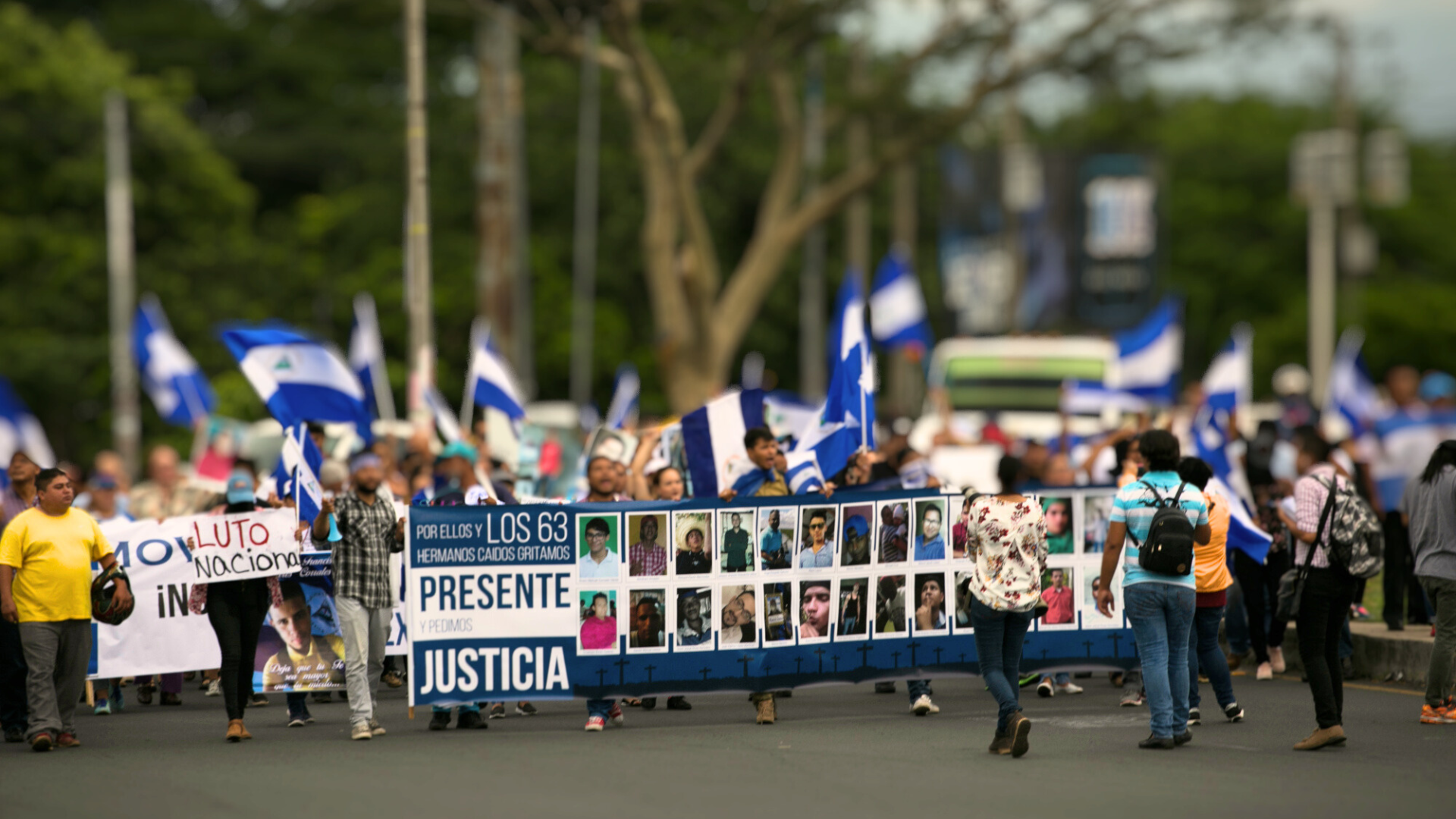Nicaraguan Regime Commits Crimes Against Humanity: International Cooperation Urged for Judicial Investigations
Geneva, 29 February, 2024. – Following the release of the second report by the Group of Human Rights Experts on Nicaragua (GHREN), which identifies President Daniel Ortega, Vice President Rosario […]

Geneva, 29 February, 2024. – Following the release of the second report by the Group of Human Rights Experts on Nicaragua (GHREN), which identifies President Daniel Ortega, Vice President Rosario Murillo, and other senior Nicaraguan state officials as perpetrators of crimes against humanity, the Institute on Race, Equality and Human Rights (Race and Equality) calls on the international community to collaborate in judicial investigations and other actions before the Universal and Inter-American Systems. Race and Equality also urges for stronger support for GHREN to further its research and achieve real accountability, both at the state and personal levels.
For this latest report, the Group of Experts conducted 642 interviews with victims of state repression and delved deeper into violations and abuses targeting specific groups such as Indigenous and Afro-descendant peoples, students and academics, members of the Catholic Church and other Christian denominations, and members of the peasant movement. The GHREN concluded that the regime “is close to permanently wiping out organized critical voices” in Nicaragua.
The GHREN identified key state institutions and officials, as well as other individuals “directly responsible for documented violations and crimes.” These include Gustavo Porras, president of the National Assembly; Rafael Solís, former magistrate of the Supreme Court of Justice, who has been exiled since his resignation in 2019, and stripped of his Nicaraguan nationality; Marvin Aguilar, Supreme Court Justice; Ana Julia Guido, Attorney General of the Republic; and Luis Cañas Novoa, Deputy Minister and Political Secretary of the Ministry of the Interior.
“Daniel Ortega and Rosario Murillo have not been committing serious violations of the human rights of the Nicaraguan population for years, but for decades. We note as a major step forward that the Group has identified a structure and chains of command within the state, including trusted advisers who carry out repressive acts against dissenting voices from the regime. The international community must – urgently – take legal action and extend sanctions to institutions and individuals identified as perpetrators of crimes under international law,” said Carlos Quesada, Director of Race and Equality.
Moreover, through interviews with 72 political prisoners, the Group corroborated patterns of torture and ill-treatment, and methods of arbitrary detention detailed in the first report. These patterns include searches without warrants, communication restrictions with families and lawyers, and prolonged ignorance of their whereabouts. According to the Mechanism for the Recognition of Political Prisoners, comprising of civil society organizations, there are currently 121 individuals (102 men and 19 women) imprisoned for political reasons in Nicaragua, with 111 cases stemming from the events of April 2018, including 12 Indigenous peoples.
The GHREN also warned that some of the regime’s new persecution strategies “extend beyond Nicaragua’s borders.” These include arbitrary revocation of Nicaraguan nationality, lack of access to official documentation and consular support, the hindrance of family reunification, among others. GHREN documented 317 cases of individuals deprived of their nationality, 145 cases of Nicaraguans barred from entering the country, 21 expulsions of foreigners, 263 expulsions of Nicaraguans, among other human rights violations.
Furthermore, the GHREN briefly addressed the need for the findings of this report to be considered when evaluating governance issues in the supervision and use of resources of International Financial Institutions. The GHREN called on the international community to “condition Nicaragua’s preferential market access on the fulfillment of non-trade policy objectives and/or assess the human rights impact on trade relations with Nicaragua.”
In this regard, Marcelo Azambuja, Legal Officer of Race and Equality, argued that “respect for democracy and human rights are economically relevant and must be considered by the International Financial Institutions in their decisions and activities towards sustainable development in Nicaragua. It is imperative that these institutions formulate and implement, in collaboration with the Nicaraguan State, human rights due diligence policies to identify, prevent, address and remedy the potential and consummate negative impacts associated with their projects and/or resources. Imposing conditions is an effective mechanism to incentivize the end to the crisis and a return to democratic normality and respect for human rights.”
Finally, the GHREN noted that the return to democracy in Nicaragua and the recovery of all that was lost under the Ortega government will require a significant amount of time and resources. In this sense, Carlos Quesada emphasized that “justice cannot be delayed any longer. The international community, particularly the countries allied with the people of Nicaragua, must take prompt action.”

